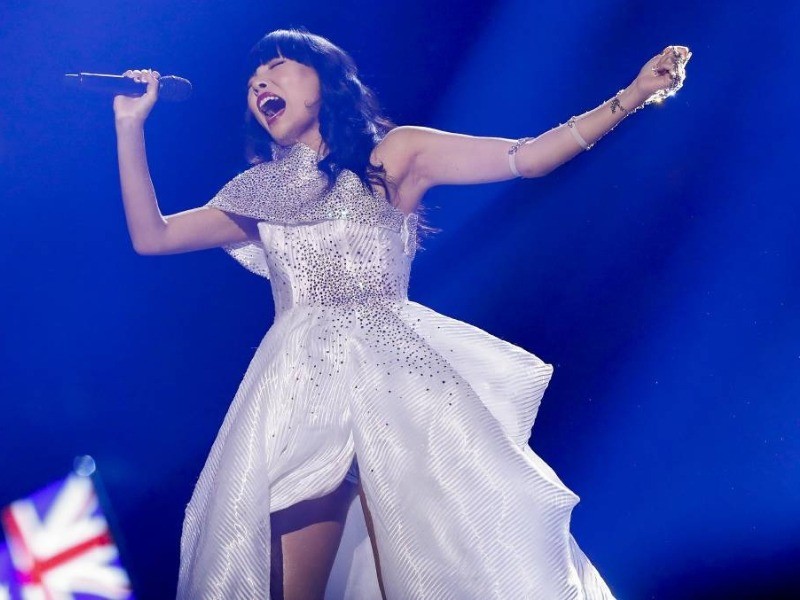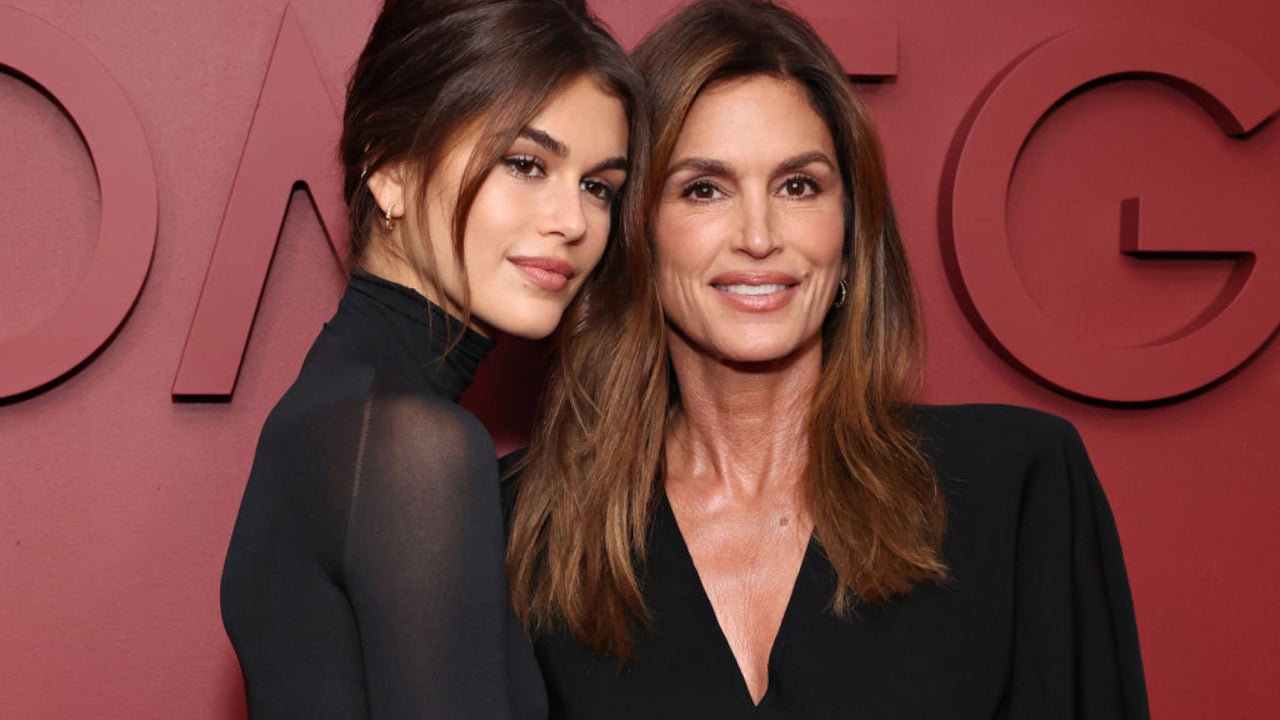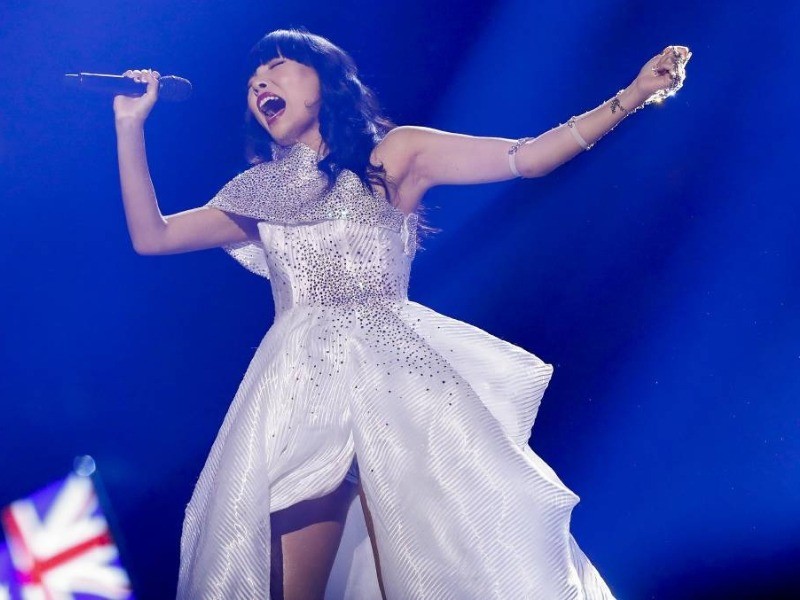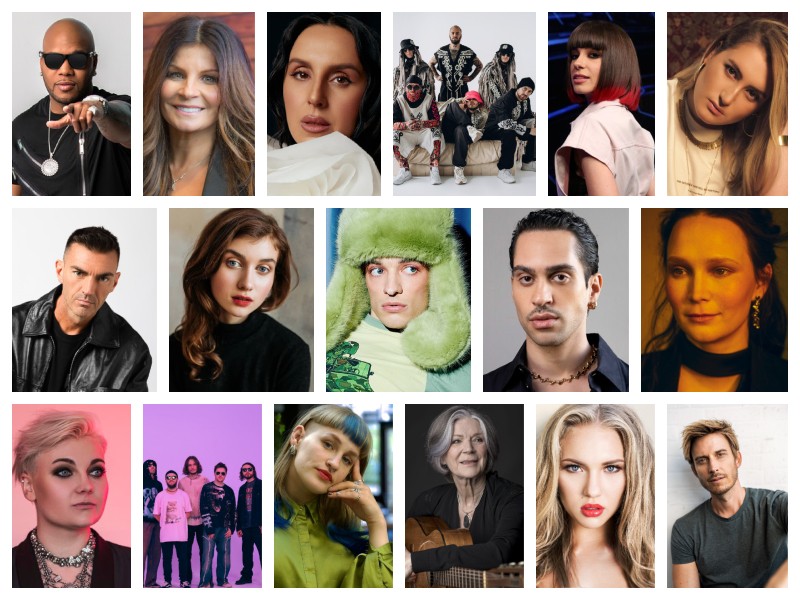
They say that history is written by the winners. And for Eurovision that is mostly the case. The victor gets the trophy and reprises their entry, while the whole shebang arrives in the winning country approximately twelve months later.
But that doesn’t mean that we forget about everyone else. Often, some would even suggest that the best songs always come second. We couldn’t possibly confirm or deny such a theory. However, we’re more than happy to put it to the test and look back at all of the runners up from 2013 to 2022.
Which second-place act is your favourite? Vote in our poll and then share your thoughts in the comments.
Eurovision second place acts: 2014 to 2023
Eurovision 2014: The Netherlands’ The Common Linnets with “Calm After the Storm”
The Netherlands shook everyone by taking second place in 2014. It was only one year after the nation qualified to the Eurovision final for the first time since 2004. The Common Linnets’ soft folk song won hearts, and for a moment it almost looked like victory was in their sights.
Eurovision 2015: Russia’s Polina Gagarina with “A Million Voices”
In a year in which the televotes and the jury couldn’t agree on anything, Russia profited and almost won. During the voting procedure, Russia held on to a lead until very late in the show, but Sweden took gold eventually.
Looking back at this in 2022, Polina Gagarina’s “A Million Voices” — with its message of peace — now seems hollow and dishonest. Polina has openly supported Russia’s war in Ukraine, and even performed at a massive Putin war rally earlier this year. Given that, we’re excluding her from the poll below. Sorry, not sorry.
Eurovision 2016: Australia’s Dami Im with “Sound of Silence”
In only its second year competing, Australia sashayed straight into the top two. Dami Im’s “Sound of Silence” won the jury vote and was seemingly on the way to a landslide victory, but eventually finished second, a tiny margin behind Ukraine’s “1944”.
Eurovision 2017: Bulgaria’s Kristian Kostov with “Beautiful Mess”
The top of the 2017 scoreboard was a beautiful mess of different genres. The winner from Portugal won the jury vote and the public, with Bulgaria’s Kristian Kostov finishing second in both. Kostov not only got the highest score ever for a non-winner, he also got the second-highest score of all time. Furthermore, just one year after Poli Genova secured Bulgaria’s top score in the contest, Kristian smashed it and then some.
Eurovision 2018: Cyprus’ Eleni Foureira with “Fuego”
In the days leading up to Eurovision 2018, fans became more and more convinced that Cyprus would win it. But in the end, as Eurovision 2019 host Assi Azar would say, they didn’t. Despite that, the song still became a staple choice for fan favourite all-time tops and achieved widespread success across Europe. We even saw it performed by Måns Zelmerlöw on the Tel Aviv stage.
Eurovision 2019: Italy’s Mahmood with “Soldi”
Mahmood’s win in the Sanremo Festival 2019 came as a surprise to many. But then, in the months leading up to Eurovision, the unique Italian R&B song grew on Eurofans. After Tel Aviv, “Soldi” charted in 24 countries in Europe.
Eurovision 2020: No contest
It’s the year that never was. Eurovision 2020 was cancelled because of that pandemic.
Eurovision 2021: France’s Barbara Pravi with “Voilà”
Barbara Pravi earned her spot at Eurovision the hard way: By competing in France’s quality national final Eurovision France: C’est Vous Qui Décidez! Barbara wowed with her voice, her beautiful melody and her classic-yet-contemporary staging to climb the scoreboard in Rotterdam. She’s subsequently toured Europe and continued to charm audiences with her kind spirit and delightful music.
Eurovision 2022: United Kingdom’s Sam Ryder with “SPACE MAN”
We all knew it would take someone very special to break the U.K.’s cycle of poor results and negative press coverage. Thankfully Sam Ryder was well up for the challenge. With his near-perfect falsetto and positive outlook on life and the contest, Sam gave the U.K. its best result since 1998. He went on to hit #2 on the U.K. charts, making “SPACE MAN” the highest charting Eurovision entry in the country since Gina G’s “Ooh Ahh…Just a Little Bit” in 1996.
Eurovision 2023: Finland’s Käärijä with “Cha Cha Cha”
Finnish rap doesn’t scream “Eurovision success.” But Käärijä knows how to break the rules. The UMK winner told the story of a man with social anxiety who grows into his own with the help of a sweet libation. He did this with a dazzling green bolero, a massive crate, and dancers performing ballroom dance. The song’s progression — from angry rap to rainbow-coloured joy — was the Jekyll and Hyde moment viewers craved. Finland stormed the televote and a legend was born.
Who is your favourite Eurovision runner-up of the past ten years?















